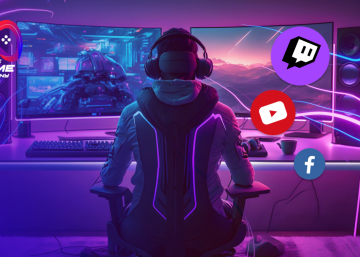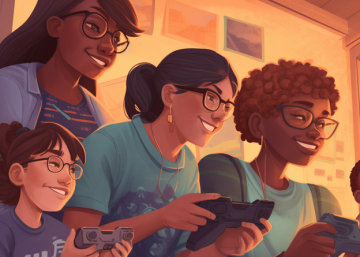In recent years, competitive gaming, commonly referred to as esports, has exploded in popularity. Professional gamers now compete on the world stage, earning lucrative contracts, sponsorships, and even recognition as athletes. But what motivates these individuals to dedicate their lives to becoming the best in the virtual arena? The psychology of competitive gaming offers intriguing insights into the driving forces behind professional gamers’ pursuit of excellence.
Read more: The Psychology of Competitive Gaming: What Motivates Professional Gamers to Excel?The Thrill of Victory
Competitive gaming taps into some fundamental human desires, such as the thrill of victory. Just like traditional athletes, professional gamers crave the euphoria of winning and standing atop the podium. This victory-driven motivation pushes them to spend countless hours honing their skills, studying opponents, and strategizing to increase their chances of success. The satisfaction derived from defeating top-tier competitors fuels their competitive spirit.
Recognition and Fame
Professional gamers often enjoy a significant amount of recognition and fame, especially in the gaming community. Just as with celebrities in other fields, the prospect of fame can be a potent motivator. This desire for recognition can manifest in various ways, from building a strong personal brand on streaming platforms to securing sponsorship deals. Fame brings with it not only financial rewards but also the satisfaction of being admired by a dedicated fan base.
Financial Incentives
The professional gaming industry offers substantial financial incentives, with top players earning millions of dollars annually. Prize pools for major esports tournaments have grown exponentially, and with the rise of streaming platforms like Twitch and YouTube Gaming, professional gamers can monetize their content and attract sponsorships. The allure of financial stability and the potential for wealth motivates many to pursue a career in competitive gaming.
Mastery and Skill Development
Gaming is a unique field where skill development and mastery of the craft can be a significant motivating factor. Just as musicians or artists strive for mastery in their disciplines, professional gamers aim to perfect their skills. The satisfaction that comes from improving and refining their gameplay is a strong motivator. They often view each defeat as an opportunity to learn and grow, making the journey towards excellence all the more satisfying.
Teamwork and Camaraderie
In esports, many games are played in team formats, and the sense of camaraderie among teammates can be a powerful motivator. Players often build deep connections with their teammates, sharing victories and losses as a unit. The desire to excel and succeed for the sake of the team can be a driving force, creating a unique blend of individual and collective motivation.
Competitiveness and Ego
The competitive nature of professional gamers should not be underestimated. Many of them are highly competitive individuals who thrive on the challenge of outperforming others. Their desire to be the best and prove themselves on the global stage can be a major source of motivation. Ego and the pursuit of superiority are not uncommon driving factors.
Passion for the Game
Above all, a deep and abiding passion for gaming often underlies a professional gamer’s motivation. They play not only to win or earn money but because they genuinely love the game. This intrinsic motivation can sustain them through long practice sessions, setbacks, and the pressures of competition.
In conclusion, the psychology of competitive gaming is a complex interplay of various motivators. From the thrill of victory and the desire for recognition to financial incentives and the love of the game itself, professional gamers are driven by a diverse set of factors. Understanding these motivations sheds light on the dedication and sacrifices that go into achieving excellence in the competitive gaming world, making esports a fascinating and ever-evolving realm of human competition.
Esports continues to grow, and as it does, the motivations of professional gamers will likely evolve with it, creating new avenues for exploration in the field of sports psychology.









